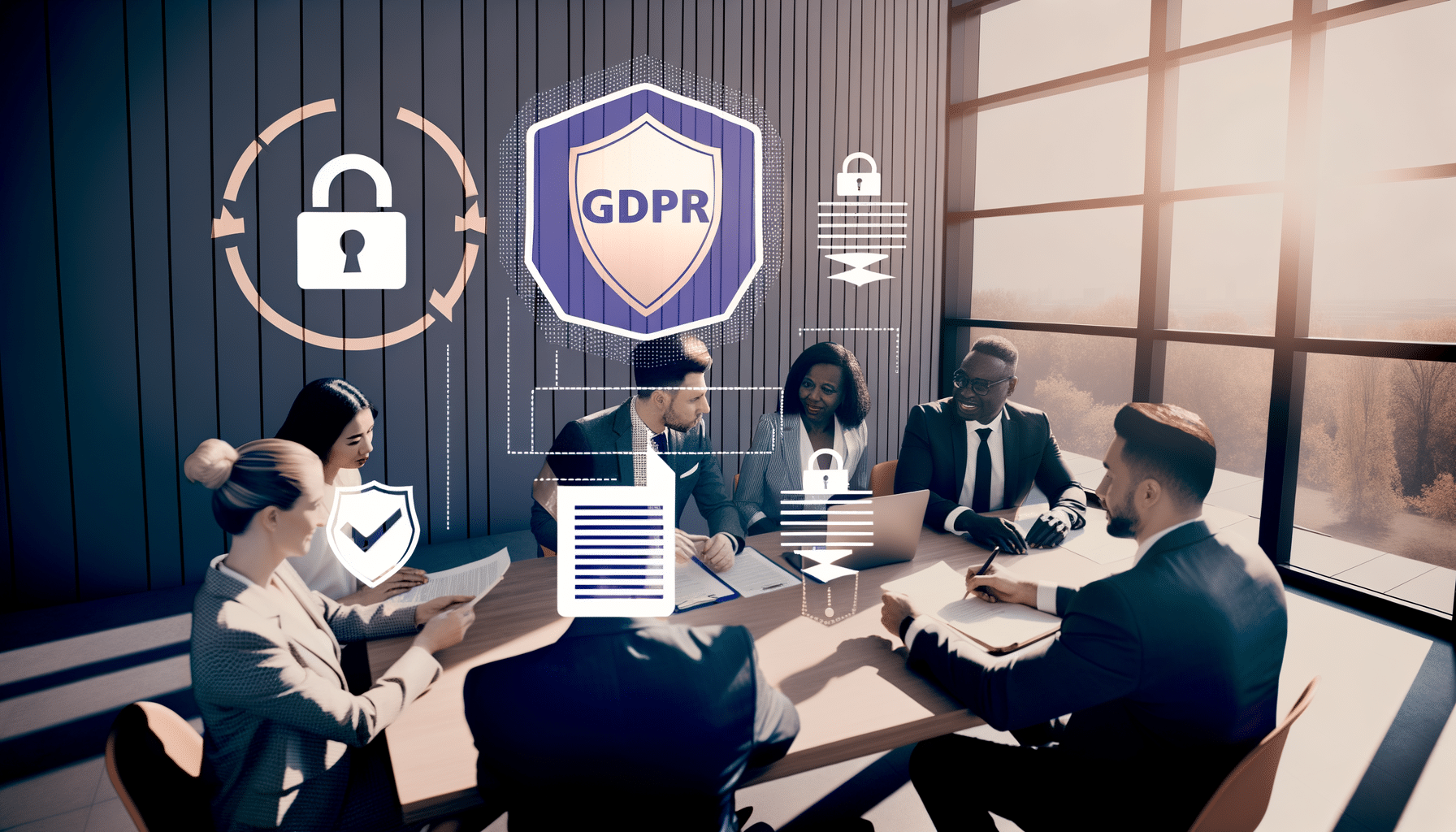- Data Compliance
- September 10, 2024
How GDPR Influences Legal Documentation

In today’s fast-paced digital age, where data flows ceaselessly across borders and through countless systems, the importance of stringent data protection has never been more paramount. Over the years, various regulations have been enacted to ensure the confidentiality and integrity of individuals’ data. Among them, the General Data Protection Regulation (GDPR) stands as a beacon of comprehensive data protection framework in the European Union. It has not only reshaped the European data landscape but has worldwide implications, especially concerning legal documentation.
Understanding GDPR and Its Reach
The GDPR, in essence, is designed to give individuals greater control over their personal data and to harmonize various data privacy laws across Europe. But its implications stretch beyond the EU, influencing any organization handling EU citizens’ data, irrespective of the organization’s physical location. This global reach means every enterprise, large or small, needs to adapt to its stringent requirements, especially when it comes to legal documentation.
The Intersection of GDPR and Legal Documentation
Legal documentation encompasses contracts, agreements, consent forms, and other records crucial for an organization’s operation. With GDPR, the execution and management of these documents have seen significant evolution.
1. Transparency and Consent
One of the core principles of the GDPR is transparency. Organizations are required to clearly inform individuals about how their data will be used at the point of collection. This is often encapsulated in consent forms and privacy notices, which now must be precise, unambiguous, and accessible in plain language.
2. Data Minimization
The GDPR emphasizes data minimization, ensuring that only necessary data is collected for specific purposes. For legal documentation, this means reviewing and possibly restructuring how data is traditionally captured in contracts or agreements to limit extraneous information.
3. Enhanced Security Measures
With GDPR, the security of data is paramount. Legal documents, which may contain sensitive personal data, must be securely stored and transmitted. This has led many organizations to adopt AI-driven data encryption and blockchain technology, such as the solutions offered by RecordsKeeper.AI, to safeguard their legal records from unauthorized access.
4. Rights to Access and Erasure
GDPR grants individuals the right to access their data and request its erasure, commonly referred to as the ‘right to be forgotten.’ Legal teams must now be equipped to quickly retrieve and possibly delete data across vast, distributed databases, presenting an operational challenge that requires robust compliance policies.
Automating GDPR Compliance with AI and Blockchain
The manual management of legal documentation to ensure GDPR compliance can be daunting and prone to error. That’s where platforms like RecordsKeeper.AI step in, offering advanced technologies that automate compliance processes:
- Automated Classification: AI-powered tools automatically tag and organize records, streamlining the retrieval process while maintaining compliance.
- Immutable Records: With blockchain integration, ensure data integrity and create tamper-proof records that stand the test of audits and scrutiny.
- Audit-Ready Reports: Generate reports that are audit-ready, ensuring compliance with GDPR’s accountability principle.
Crafting a GDPR-Compliant Future
As legal frameworks evolve with technological advancements, organizations need to stay abreast of regulatory requirements like those imposed by the GDPR. By integrating innovative solutions into their operations, they not only ensure compliance but also bolster their strategic advantage.
Implementing GDPR-compliant practices into legal documentation optimizes data privacy and instills trust among stakeholders. While the road to complete compliance can be intricate, embracing technologies like AI and blockchain can ease the journey.
Conclusion
The GDPR is more than a regulation; it’s a reflection of modern-day concerns around data privacy and protection. As the founder of RecordsKeeper.AI, I see firsthand how these regulatory changes challenge and ultimately strengthen organizational frameworks. By leveraging cutting-edge technology, embracing automated solutions, and adopting a proactive approach to regulatory compliance, we can transform this challenge into a strategic cornerstone of success. For more insightful discussions and solutions, stay connected with me, Toshendra Sharma, as we navigate the evolving landscape of legal documentation and data privacy together.
Toshendra Sharma is the visionary founder and CEO of RecordsKeeper.AI, spearheading the fusion of AI and blockchain to redefine enterprise record management. With a groundbreaking approach to solving complex business challenges, Toshendra combines deep expertise in blockchain and artificial intelligence with an acute understanding of enterprise compliance and security needs.
Archives
- January 2025
- December 2024
- November 2024
- October 2024
- September 2024
- August 2024
- July 2024
- June 2024
- May 2024
- April 2024
- March 2024
- February 2024
- January 2024
- December 2023
- November 2023
- October 2023
- September 2023
- August 2023
- July 2023
- June 2023
- May 2023
- April 2023
- March 2023
- February 2023
- January 2023
- December 2022
- November 2022
- October 2022
- September 2022
Want to get more content like this?
Signup to directly get this type of content to your inbox!!
Latest Post
Document Control for Equipment Maintenance
- January 20, 2025
Managing Records for Multiple Clients
- January 19, 2025
Handling Conference Documentation
- January 18, 2025
Setting Up Department Record Reviews
- January 17, 2025





